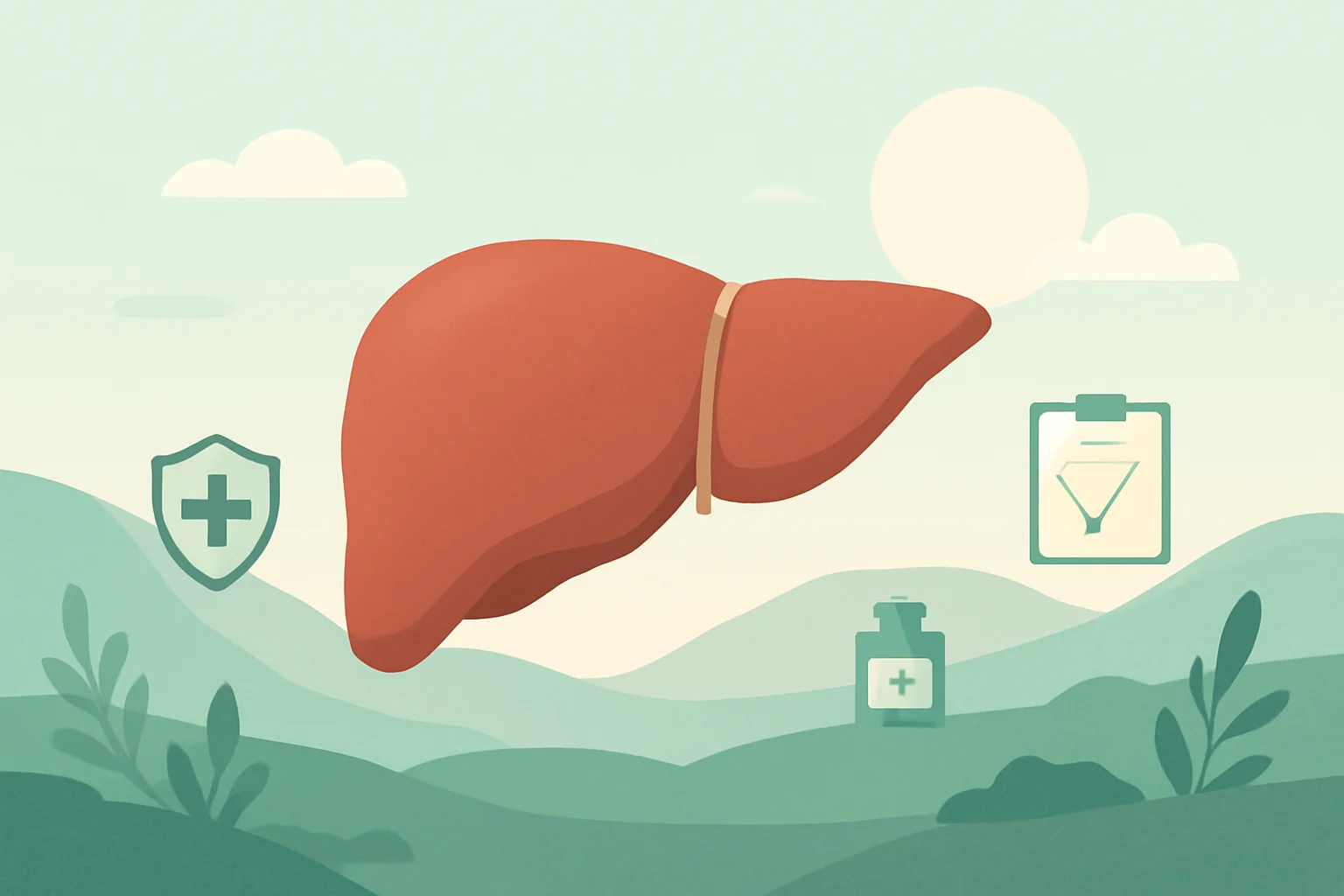
Symptoms of Fatty Liver: How to Recognize the Problem in Time?
A fatty liver is an increasingly common health issue that affects many, particularly as a consequence of modern lifestyles. Fatty degeneration of the liver means that more fat accumulates in the liver cells than normal, which can lead to various symptoms and health complications. Numerous factors can contribute to the development of fatty liver, including poor diet, obesity, sedentary lifestyle, and diabetes. Fatty liver is initially asymptomatic in most cases, making it difficult to recognize, but over time it can lead to more serious health problems, including liver inflammation, cirrhosis, and even liver cancer.
The Symptoms of Fatty Liver
The symptoms of fatty liver typically develop gradually, and in many cases, those affected do not even realize they have a problem. The most common early signs include fatigue, weakness, and difficulty concentrating. These symptoms can easily be confused with other, less harmful issues, making early diagnosis challenging.
Another characteristic symptom of fatty liver is abdominal discomfort or pain, particularly in the area of the liver. Those affected often experience mild pain on the right side, under the ribs. Additionally, yellowish discoloration may appear on the skin and eyes, which can be a sign of jaundice and indicates liver dysfunction.
Another warning sign of fatty liver is itching of the skin, as well as darkening of the urine and lightening of the stool. These symptoms may indicate that the liver is no longer able to adequately remove toxins from the body. In more severe cases, when fatty liver causes inflammation, fever, loss of appetite, and sudden weight loss may also occur.
Medical tests are necessary to diagnose fatty liver, including blood tests and ultrasound examinations. If any of the above symptoms are noticed, it is important to consult a doctor as soon as possible to initiate appropriate treatment and lifestyle changes.
The Causes of Fatty Liver
The causes of fatty liver are diverse, and in most cases, it is a combination of several factors. One of the most common causes is an unhealthy diet, which includes the consumption of foods high in sugar and fat. Regular consumption of fast food, soft drinks, and processed foods contributes to the development of fatty liver.
Obesity is also a significant risk factor. Those who are overweight or obese are more likely to suffer from fatty liver, as excess fat accumulates in the liver as well. A sedentary lifestyle, which is characteristic of modern societies, further increases this risk. The lack of regular physical activity makes it difficult to burn calories and contributes to fat storage.
Diabetes and insulin resistance also play a significant role in the development of fatty liver. These metabolic disorders make it difficult for the body to properly process fats, leading to accumulation in the liver.
Additionally, certain medications, such as corticosteroids and cholesterol-lowering drugs, can also contribute to the development of fatty liver. A family history of liver disease may also increase the risk, so it is important to be consciously aware of family health conditions.
The Treatment and Prevention of Fatty Liver
The treatment of fatty liver focuses on eliminating the underlying causes, and the most important step is to implement lifestyle changes. The first and foremost step is to improve nutrition. A balanced diet rich in vegetables, fruits, whole grains, and healthy fats can help reduce the fat content in the liver.
Minimizing the intake of sugar and saturated fats is also crucial. Regular physical activity is essential in the treatment of fatty liver. At least 150 minutes of moderate-intensity exercise per week is recommended, such as walking, swimming, or cycling. Physical activity helps burn calories and reduce body weight, which has a positive effect on liver health.
Stress management is also an important part of treating fatty liver. Stress and anxiety can negatively impact eating habits and exercise, so techniques for managing stress, such as meditation, yoga, or breathing exercises, can be beneficial.
If the condition of fatty liver worsens, medical treatment may also be necessary, including medications or other therapies recommended by a specialist. The most important thing is not to ignore the symptoms and to see a doctor in a timely manner if you suspect you have fatty liver.
To prevent fatty liver, the most important factor is maintaining a conscious lifestyle. Healthy eating, regular exercise, and stress management together can help avoid the development of fatty liver and maintain liver health.
**Warning:** This article does not constitute medical advice. If you have health concerns, please always consult your doctor.

